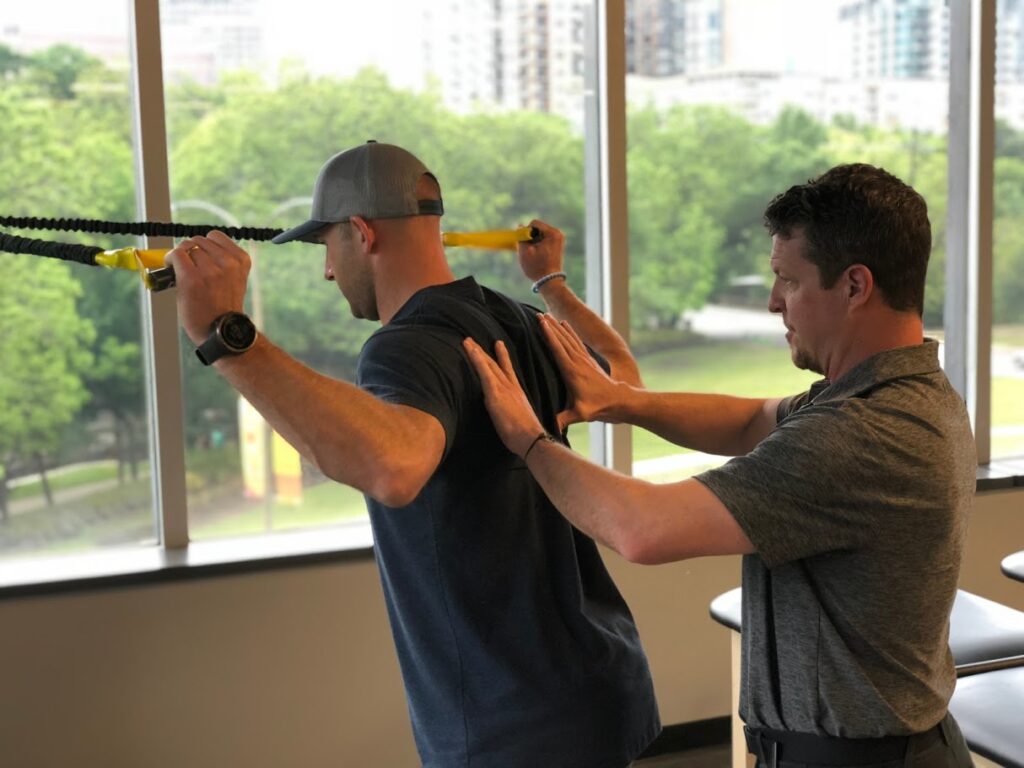CPTN Certified Fascial Posture Training Specialist (CFPTS) Certification Review (2025)
Read this CPTN Certified Fascial Posture Training Specialist (CFPTS) Certification Review to decide if the CPTN CFPTS Certification is worth it and what the best personal training certification is for you.

The CPTN (Certified Professional Trainers Network) Certified Fascial Posture Training Specialist (CFPTS) Certification is a specialized program that focuses on understanding the role of fascia in posture, movement, and overall functional fitness. This certification aims to equip fitness professionals with the knowledge and skills to assess and improve fascial health and posture in their clients, enhancing movement efficiency and reducing the risk of injury.
Certifications in the fitness industry are becoming increasingly important for professionals looking to stand out in a crowded market. One such certification is the CPTN Certified Fascial Posture Training Specialist (CFPTS) Certification. In this article, we will provide an in-depth review of the CFPTS Certification, including its importance in the fitness industry, eligibility and requirements, the certification process, benefits, review and feedback, continuing education, and recertification. By the end of this article, you will have a comprehensive understanding of CFPTS Certification and its value in the fitness industry.

Discover everything you need to know about the CPTN Certified Fascial Posture Training Specialist (CFPTS) certification in this comprehensive review. Whether you want to learn how to become a personal trainer, or learn how to become a fitness influencer, or learn how to open a gym, or learn how to start a fitness business, or anything in between, use the Exercise.com platform to accomplish your fitness business goals.
You can start an online personal training business, make a fitness app, learn how to make money selling workout plans online, put in-person personal training marketing ideas into action, use personal training income ideas to find personal trainer career options that will put you on track for the highest paying fitness jobs, and many other ways to make money from fitness doing what you love.
With the Exercise.com platform you have the best online fitness coaching software and the best software for fitness influencers all in one! (Not to mention the best gym software and the best personal training software).
Create workout plans.

Manage clients.

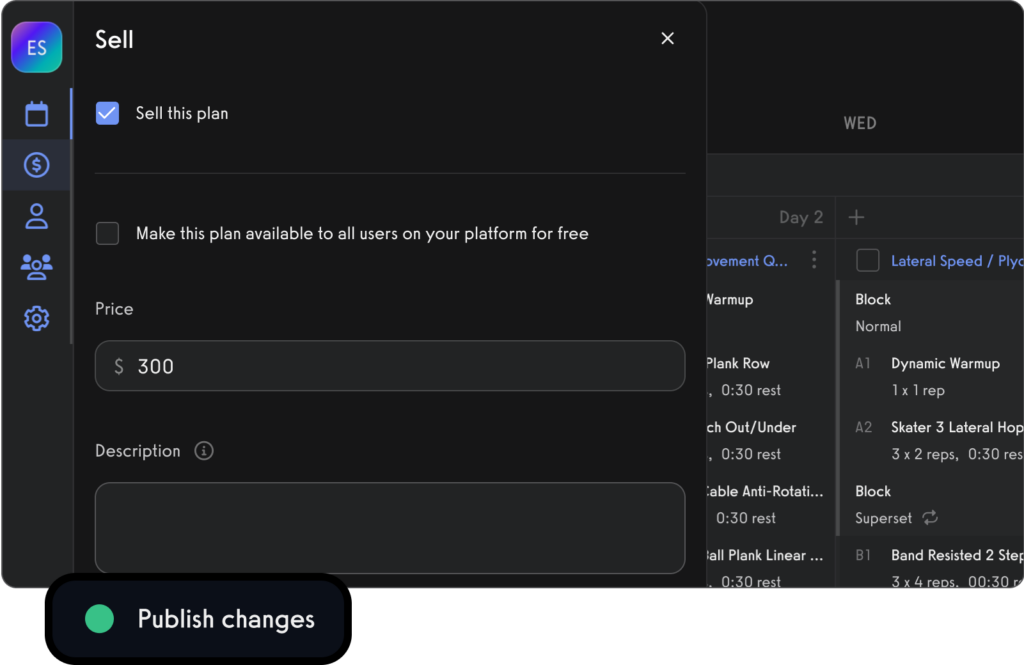
Run online fitness challenges.
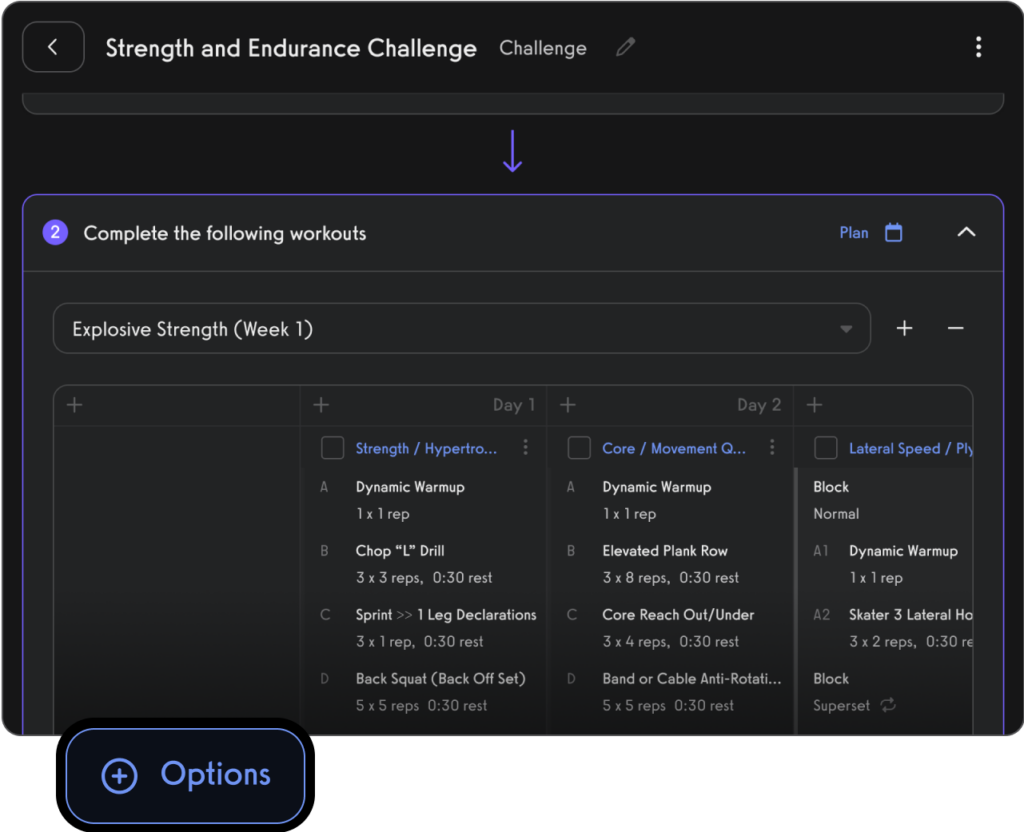
Create and sell fitness memberships, products, and digital offers.

Manage, message, and market to your online personal training clients and leads.
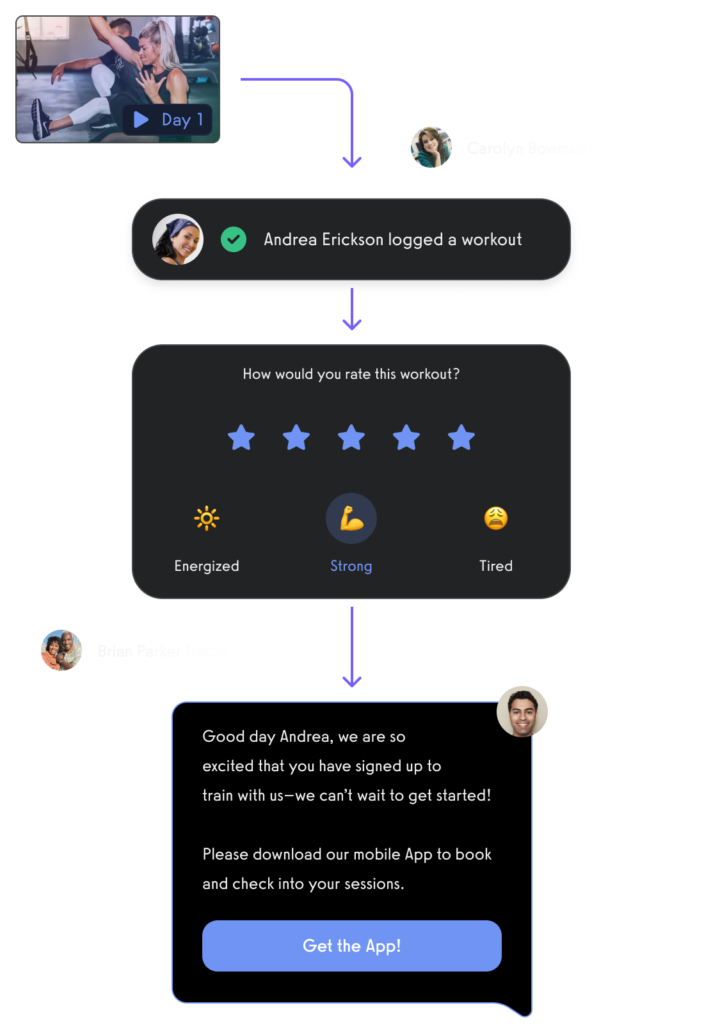
All from your very own custom branded fitness apps.

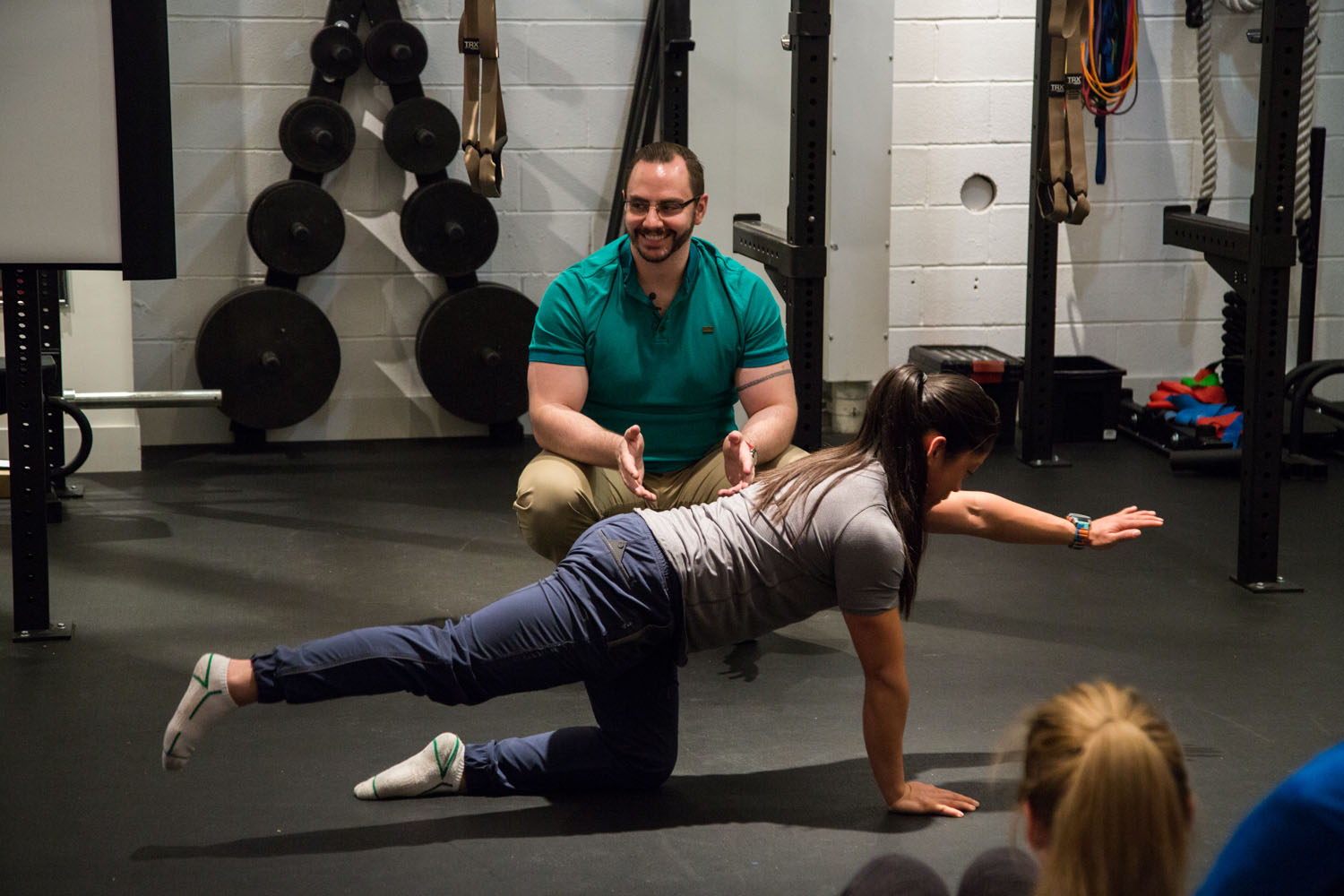
CPTN CFPTS Certification
The Certified Professional Trainers Network (CPTN) offers the Certified Fascial Posture Training Specialist (CFPTS) Certification, specifically designed for fitness and health professionals aiming to deepen their understanding of fascial systems and their impact on posture, movement, and performance. This certification equips trainers with advanced techniques to assess and improve fascial health and posture, enhancing client well-being and athletic performance.
- Target Audience: Ideal for personal trainers, physiotherapists, massage therapists, and other professionals in the health and fitness industry interested in incorporating fascial training into their practice.
- Curriculum: The CFPTS certification covers the anatomy and physiology of fascial systems, assessment techniques for fascial restrictions, and corrective exercises to improve fascial health and postural alignment.
- Study Materials: Candidates receive access to comprehensive resources, including textbooks, online modules, and possibly workshops or seminars, providing in-depth knowledge on fascial posture training.
- Professional Recognition: Earning the CFPTS designation signifies a specialized understanding of fascial systems, positioning certified professionals as experts in posture and movement optimization.
Certification Requirements
To qualify for the CPTN CFPTS Certification, candidates must:
- Be at least 18 years old.
- Hold current First Aid and CPR certifications.
- Possess a Certified Personal Trainer designation from CPTN or a recognized fitness organization.
CPTN CFPTS Exam Content
The certification exam evaluates a candidate’s mastery of fascial posture training concepts and their practical application:
Fascial Anatomy and Physiology
- Comprehensive understanding of fascial networks, their role in posture and movement, and the impact of fascial restrictions on overall health and performance.
Assessment Techniques
- Proficiency in conducting fascial assessments to identify areas of restriction and postural imbalances.
Corrective Exercise Strategies
- Development and implementation of targeted exercise programs that address fascial restrictions, improve postural alignment, and enhance functional movement.
Integration into Training Programs
- Ability to integrate fascial posture training techniques into broader fitness or therapeutic programs, tailoring interventions to individual client needs.
Candidates must achieve a passing score on the exam to earn the CFPTS designation.
Continuing Education and Recertification
The CPTN emphasizes ongoing learning and professional growth:
- Continuing Education Units (CEUs): CFPTS-certified professionals are required to earn CEUs within their recertification cycle to maintain their certification and stay updated on the latest in fascial research and training methods.
- Professional Development: CPTN offers additional courses and workshops that certified specialists can pursue to further their expertise and expand their skill set in fascial training and related areas.
Certification Cost
The investment in the CPTN CFPTS Certification includes fees for study materials, access to online content, and the certification exam. While costs may vary, the specialized knowledge and skills gained justify the investment for professionals dedicated to advancing their understanding of fascial systems and posture training.
Comparison of CPTN CFPTS vs Other Postural Certifications
Here is a comparison of the CPTN Certified Fascial Posture Training Specialist (CFPTS) Certification with other certifications that closely align with a postural focus:
CPTN Certified Fascial Posture Training Specialist (CFPTS) Certification
- Focus: Specializes in fascial posture training, assessing posture, and educating clients on body alignment.
- Certifying Agency: Certified Professional Trainers Network (CPTN).
- Duration: Varies, likely focusing on posture assessment, corrective exercises, and client education.
National Posture Institute’s Certified Posture Specialist (NPI-CPS) Certification
- Focus: Prepares professionals to assess and educate clients in all areas of posture and body alignment.
- Certifying Agency: National Posture Institute.
- Format: 100% online program with modules and a final certificate exam over three months.
The Biomechanics Method Corrective Exercise Specialist Certification
- Focus: Offers an extensive focus on dealing with chronic pain and includes an extensive exercise library.
- Certifying Agency: The Biomechanics Method.
- Pros: Lifetime access to course materials, partnerships with prestigious certifying agencies.
NASM Corrective Exercise Specialist (CES) Certification
- Focus: Centers on corrective exercise strategies, human movement science, and optimizing movement quality.
- Certifying Agency: National Academy of Sports Medicine (NASM).
- Accreditation: NCCA Accredited.
- Duration: Completion time varies, emphasizing corrective exercise and human movement.
ISSA Corrective Exercise Specialist (CES) Certification
- Focus: Teaches trainers to help clients with injuries and musculoskeletal issues.
- Certifying Agency: International Sports Sciences Association (ISSA).
- Pros: Offers a wide variety of certifications and specializations, high credibility and reputation.
Each certification program provides professionals with specialized knowledge in assessing posture, body alignment, corrective exercises, and dealing with musculoskeletal issues. The choice of certification may depend on individual preferences, focus areas, accreditation status, study materials, and career goals within the fitness industry.
Overall CPTN CFPTS Rating
The CPTN Certified Fascial Posture Training Specialist Certification is a valuable asset for professionals seeking to specialize in the emerging field of fascial training.
- Pros: Advanced knowledge in fascial systems, improved client outcomes through posture optimization, and enhanced professional standing as a fascial training specialist.
- Cons: Requires prior certification in personal training and additional investment in CEUs for recertification.
Overall, the CFPTS Certification is highly recommended for health and fitness professionals looking to incorporate cutting-edge fascial training techniques into their practice, offering a unique approach to improving posture, movement efficiency, and overall client health.
Before diving into the details, let’s first understand what CFPTS Certification is all about. CFPTS Certification is a specialized certification that focuses on fascial posture training. It equips fitness professionals with the knowledge, skills, and techniques required to work with clients in improving their posture through fascial training. It is a highly sought-after certification that is recognized and respected in the fitness industry.
So, what exactly is fascial posture training? Fascia is the connective tissue that surrounds and supports muscles, bones, and organs in the body. It plays a crucial role in maintaining proper alignment and balance. However, due to various factors such as poor posture, repetitive movements, and lack of mobility, the fascia can become tight, restricted, and imbalanced, leading to postural issues and movement dysfunctions.
CFPTS Certification is designed to address these problems by providing fitness professionals with a comprehensive understanding of how fascia affects posture and movement. It goes beyond traditional approaches to posture correction by focusing on the fascial system and its role in maintaining optimal alignment.
CFPTS Certification is a rigorous program that aims to educate fitness professionals on the principles, techniques, and applications of fascial posture training. It provides a comprehensive understanding of how fascia – the connective tissue that surrounds and supports muscles, bones, and organs – affects posture and movement. The certification covers a wide range of topics, including assessment techniques, corrective exercises, and programming for different populations.
The program begins with an in-depth exploration of the anatomy and physiology of fascia, providing fitness professionals with a solid foundation of knowledge. Participants learn about the different types of fascia, their functions, and their interconnectedness throughout the body. They also gain insights into the fascial lines and how they influence posture and movement patterns.
Once the foundational knowledge is established, the program delves into assessment techniques that help identify postural imbalances and dysfunctions. Fitness professionals learn how to conduct thorough postural assessments, analyze movement patterns, and identify areas of restriction or weakness in the fascial system. These assessments serve as the basis for developing individualized training programs that target specific areas of concern.
The certification also includes a wide range of corrective exercises and techniques that are specifically designed to address fascial imbalances and improve posture. Fitness professionals learn how to incorporate various modalities such as myofascial release, stretching, strengthening, and neuromuscular retraining to restore optimal alignment and function.
Furthermore, the program covers programming considerations for different populations, including athletes, older adults, and individuals with specific postural issues or injuries. Fitness professionals learn how to adapt and modify exercises to meet the unique needs and goals of their clients.
Importance of CFPTS Certification in the Fitness Industry
Posture-related issues are prevalent in today’s sedentary lifestyle, and they can lead to various musculoskeletal problems. Therefore, the demand for fitness professionals with expertise in fascial posture training is on the rise. CFPTS Certification sets professionals apart by demonstrating their specialized knowledge and skills in addressing posture-related issues.
By obtaining this certification, fitness professionals become valuable assets to clients seeking guidance in improving their posture, preventing injuries, and enhancing overall well-being. They are equipped with the tools and techniques to help clients achieve optimal alignment, restore balance in the fascial system, and improve movement efficiency.
Moreover, CFPTS Certification provides a competitive edge in the fitness industry. It demonstrates a commitment to continuous learning and professional development, which is highly valued by employers, clients, and peers. Certified professionals are often sought after by fitness facilities, rehabilitation centers, and sports performance clinics, as they bring a unique skill set that can make a significant impact on their clients’ lives.
In conclusion, CFPTS Certification is a comprehensive program that equips fitness professionals with the knowledge, skills, and techniques to address posture-related issues through fascial posture training. It is a valuable certification that opens up new opportunities in the fitness industry and allows professionals to make a positive impact on their clients’ well-being.
Eligibility and Requirements for CFPTS Certification
To pursue CFPTS Certification, aspiring candidates need to meet certain eligibility criteria. CFPTS Certification is a highly respected credential in the fitness industry, and obtaining it can open up new career opportunities and enhance professional credibility.
Educational Background and Experience Required
Prior education or experience in the fitness industry is highly recommended before applying for CFPTS Certification. A strong foundation in anatomy, physiology, biomechanics, and exercise programming will greatly benefit candidates during the certification process. Having a solid understanding of these fundamental concepts will enable candidates to design effective and safe exercise programs for their clients.
In addition to theoretical knowledge, practical experience in the fitness industry is also valuable. Working in a gym or fitness center, volunteering at community events, or assisting experienced personal trainers can provide candidates with hands-on experience and a deeper understanding of the practical aspects of personal training.
Furthermore, having a background in sports science or exercise science can be advantageous. These fields provide a comprehensive understanding of human movement, performance optimization, and injury prevention. Candidates with a background in sports science or exercise science will be equipped with advanced knowledge and skills, allowing them to deliver exceptional training programs to clients.
Prerequisites for CFPTS Certification
There are no specific prerequisites for CFPTS Certification; however, it is recommended that candidates have a recognized personal training certification or equivalent credentials. This ensures that candidates have a basic understanding of exercise programming, client assessment, and safety protocols.
Having a personal training certification demonstrates that candidates have already obtained a solid foundation in the principles of exercise science and client management. It also indicates that candidates have completed coursework or training programs that cover topics such as exercise physiology, nutrition, and exercise prescription.
While not mandatory, having a personal training certification before pursuing CFPTS Certification can give candidates a head start in their journey. It allows them to build upon their existing knowledge and skills, ensuring a smoother transition into the CFPTS Certification program.
Moreover, candidates who have previous experience working as a personal trainer are more likely to excel in the CFPTS Certification process. Practical experience in the field provides candidates with real-world insights, challenges, and successes, which can significantly enhance their ability to apply theoretical knowledge to practical situations.
In conclusion, CFPTS Certification is a prestigious credential that requires candidates to meet certain eligibility criteria. While there are no specific prerequisites, a solid educational background and experience in the fitness industry are highly recommended. These factors contribute to the overall success of candidates in the certification process and their ability to provide high-quality personal training services to clients.
CFPTS Certification Process
The CFPTS Certification process consists of several steps, including the application and registration process, examination format and structure, and study materials and resources.
Application and Registration Process
To begin the CFPTS Certification process, candidates need to complete an application form, providing their personal and professional details. This information is crucial as it helps the certification board assess the candidate’s eligibility for the program. The application form typically includes fields for the candidate’s name, contact information, educational background, work experience, and any relevant certifications or qualifications they may hold.
Once the application is accepted, candidates can proceed with the registration process. The registration fee includes access to study materials and resources, as well as the examination fee. The registration process is usually straightforward and can be completed online or through a designated registration portal. Candidates are required to provide payment for the registration fee and agree to the terms and conditions set by the certification board.
After successfully registering for the CFPTS Certification, candidates will receive a confirmation email or letter containing important information such as the examination date, location, and any additional instructions they need to follow. It is essential for candidates to carefully review this information to ensure they are well-prepared for the upcoming examination.
Examination Format and Structure
The CFPTS Certification examination is a comprehensive test that assesses candidates’ knowledge and understanding of fascial posture training. The examination consists of multiple-choice questions, case studies, and practical assessments that simulate real-life training scenarios. This diverse format allows the certification board to evaluate candidates’ theoretical knowledge, practical skills, and ability to apply the principles of fascial posture training in various contexts.
During the examination, candidates may be presented with multiple-choice questions that test their understanding of key concepts, theories, and techniques related to fascial posture training. These questions often require candidates to analyze scenarios and choose the most appropriate course of action based on their knowledge and expertise.
In addition to multiple-choice questions, candidates will also encounter case studies that require them to evaluate specific client scenarios and provide recommendations or solutions based on their understanding of fascial posture training principles. This part of the examination assesses candidates’ ability to apply their theoretical knowledge to real-life situations and make informed decisions to promote optimal client outcomes.
Furthermore, the CFPTS Certification examination includes practical assessments that allow candidates to demonstrate their proficiency in performing fascial posture training techniques. These practical assessments may involve working with a simulated client or performing specific exercises and movements under the supervision of an examiner. This hands-on component of the examination ensures that candidates can effectively apply their knowledge and skills in a practical setting.
Study Materials and Resources
CFPTS Certification provides candidates with a wealth of study materials and resources to help them prepare for the examination. These materials are designed to cover all the necessary content and provide candidates with a comprehensive understanding of fascial posture training.
One of the primary study resources provided to candidates is a set of textbooks that cover the fundamental concepts, theories, and techniques of fascial posture training. These textbooks are written by experts in the field and serve as a comprehensive guide for candidates to study and reference throughout their preparation process.
In addition to textbooks, CFPTS Certification offers online learning modules that provide interactive and engaging content to enhance candidates’ understanding of fascial posture training. These modules often include instructional videos, interactive quizzes, and practical demonstrations that allow candidates to actively engage with the material and reinforce their learning.
Furthermore, CFPTS Certification provides candidates with sample quizzes and case studies that mimic the format and style of the actual examination. These resources allow candidates to familiarize themselves with the types of questions they may encounter and practice their problem-solving skills in a controlled environment.
Lastly, candidates may also have access to additional resources such as webinars, workshops, and conferences organized by CFPTS Certification. These events provide opportunities for candidates to further expand their knowledge, network with industry professionals, and stay up-to-date with the latest advancements in fascial posture training.
In conclusion, the CFPTS Certification process encompasses various steps that ensure candidates possess the necessary knowledge, skills, and understanding of fascial posture training. From the application and registration process to the examination format and study materials, CFPTS Certification strives to provide candidates with a comprehensive and rigorous certification experience.
Benefits of CFPTS Certification
Obtaining CFPTS Certification offers numerous benefits for fitness professionals. Let’s explore some of the key advantages.
Enhanced Knowledge of Fascial Posture Training
CFPTS Certification equips fitness professionals with in-depth knowledge of fascial posture training. This includes understanding the role of fascia in movement, assessing postural imbalances, designing effective corrective exercises, and implementing appropriate programming strategies. With this specialized knowledge, professionals can provide targeted and effective training to clients with posture-related issues.
By delving deep into the world of fascial posture training, CFPTS Certification holders gain a comprehensive understanding of how fascia, the connective tissue that surrounds muscles and organs, plays a crucial role in maintaining posture and movement. They learn about the intricate connections between fascia, muscles, and bones, and how imbalances in the fascial system can lead to postural distortions and movement dysfunctions.
Furthermore, CFPTS Certification provides professionals with the tools to assess postural imbalances accurately. They learn how to analyze a client’s posture and identify specific areas of weakness or tightness in the fascial system. Armed with this knowledge, they can develop personalized corrective exercise programs that target the underlying fascial imbalances, helping clients improve their posture and overall movement quality.
Moreover, CFPTS Certification covers the design and implementation of effective programming strategies for fascial posture training. Professionals learn how to create progressive and individualized training plans that address their clients’ unique needs and goals. They gain insights into exercise selection, sequencing, and progression, ensuring that each session is purposeful and aligned with the client’s objectives.
Increased Credibility and Professionalism
CFPTS Certification adds credibility and professionalism to a fitness professional’s profile. Clients look for trainers with specialized certifications, as it demonstrates their commitment to continued education and expertise in a specific area. With CFPTS Certification, professionals can position themselves as go-to experts in fascial posture training.
By investing time and effort into obtaining CFPTS Certification, fitness professionals showcase their dedication to staying at the forefront of their field. This commitment to ongoing learning and professional development enhances their credibility and instills confidence in their clients. It reassures clients that they are working with a knowledgeable and skilled professional who is equipped with the latest evidence-based practices in fascial posture training.
Furthermore, CFPTS Certification can open doors to new opportunities in the fitness industry. Fitness professionals with this certification may be sought after by employers who recognize the value of specialized expertise in fascial posture training. They may have access to a wider range of job opportunities in gyms, health clubs, rehabilitation centers, sports performance facilities, and private studios. Additionally, CFPTS Certification holders may have the advantage of attracting more clients and being able to charge higher rates for their specialized services.
Expanded Career Opportunities
CFPTS Certification opens up a world of career opportunities for fitness professionals. With the growing demand for expertise in fascial posture training, certified specialists can find employment in various settings.
Gyms and health clubs are increasingly recognizing the importance of fascial posture training in helping clients achieve their fitness goals. As a result, they are actively seeking fitness professionals with CFPTS Certification to join their teams. These professionals can become valuable assets to these establishments, offering specialized services that cater to clients’ specific needs.
Rehabilitation centers also provide a promising career path for CFPTS Certification holders. Many individuals seek rehabilitation services to recover from injuries or manage chronic conditions that affect their posture and movement. With their knowledge of fascial posture training, certified specialists can assist in the rehabilitation process, helping clients regain optimal posture and movement patterns.
Sports performance facilities are another potential avenue for CFPTS Certification holders. Athletes and sports enthusiasts are increasingly recognizing the impact of proper posture and movement on performance and injury prevention. Fitness professionals with CFPTS Certification can work with athletes to optimize their posture and movement mechanics, enhancing their athletic performance and reducing the risk of injuries.
Private studios also offer opportunities for CFPTS Certification holders to establish their own businesses. By positioning themselves as experts in fascial posture training, these professionals can attract clients who are specifically seeking their specialized services. They can create a niche market for themselves, providing personalized training programs that address clients’ unique postural needs.
CFPTS Certification not only enhances fitness professionals’ knowledge of fascial posture training but also elevates their credibility and opens up a world of career opportunities. With this specialized certification, professionals can make a significant impact on their clients’ lives, helping them improve their posture, movement quality, and overall well-being.
Continuing Education and Recertification
To maintain the CFPTS Certification, professionals are required to engage in continuing education and go through the recertification process.
Importance of Continuing Education for CFPTS Specialists
Continuing education is crucial for CFPTS specialists to stay up-to-date with the latest advancements in fascial posture training. It allows professionals to enhance their knowledge, explore new techniques, and refine their skills. By continuing their education, specialists can provide clients with the most effective and evidence-based training methods.
Recertification Process and Requirements
CFPTS specialists are required to recertify every few years to demonstrate their ongoing commitment to excellence. The recertification process typically involves completing a set number of continuing education credits, which can be earned through workshops, seminars, online courses, and conferences. Additionally, specialists may need to submit proof of their professional experience and competency in fascial posture training.
CFPTS Certification is a specialized certification that focuses on fascial posture training. It equips fitness professionals with the knowledge, skills, and techniques required to address posture-related issues effectively. With the growing demand for expertise in fascial posture training, obtaining CFPTS Certification can significantly enhance career opportunities and provide a competitive edge in the fitness industry. By continuously investing in continuing education and maintaining the certification through recertification, CFPTS specialists can ensure they stay at the forefront of this rapidly evolving field. So, if you are passionate about improving posture, preventing injuries, and transforming lives, CFPTS Certification is the next step in your fitness career.
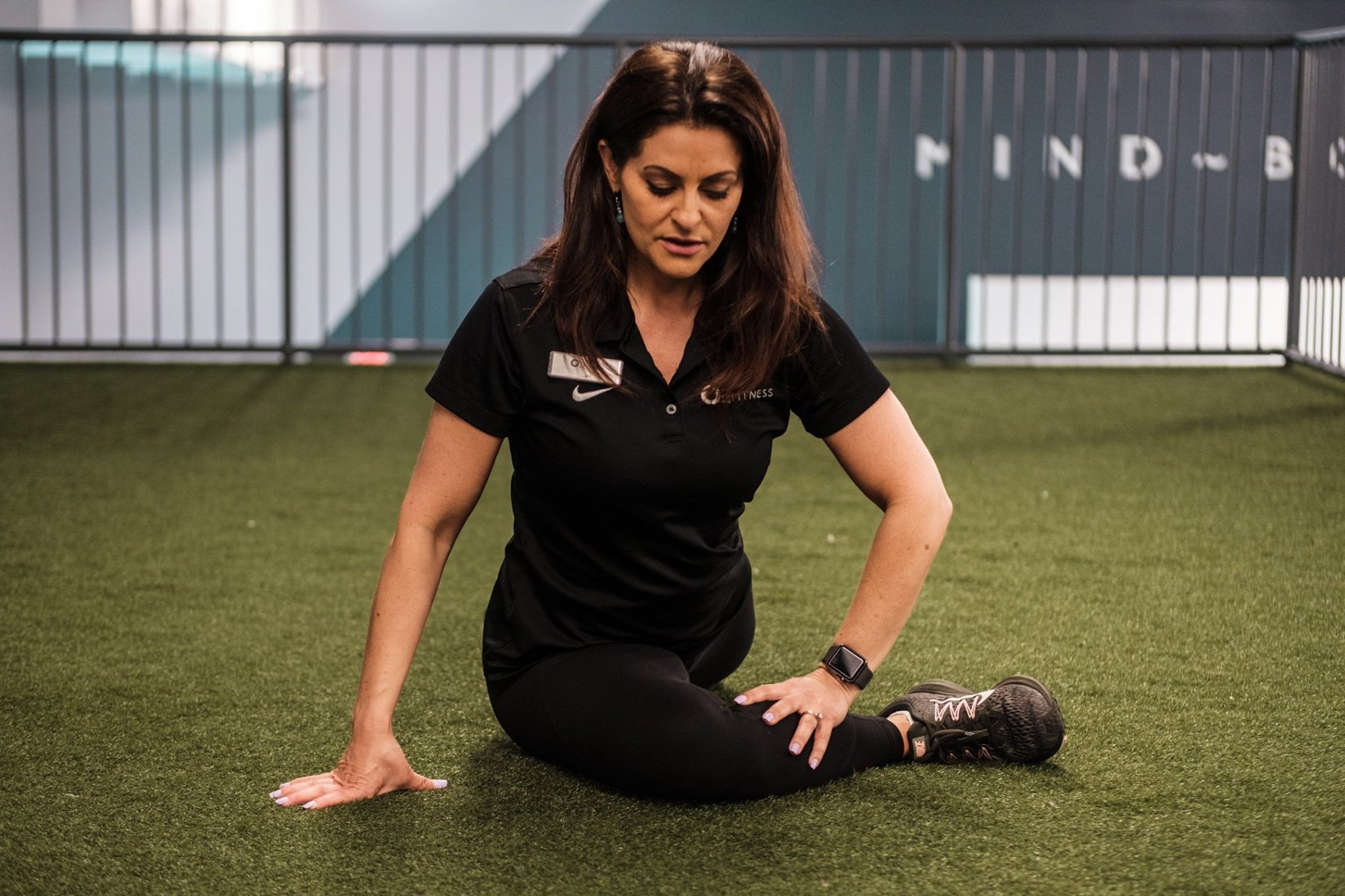
What is the CPTN CFPTS Certification?
The CPTN CFPTS Certification delves into the anatomy and physiology of fascia, its significance in posture and movement, and the impact of fascial restrictions on the body. The program covers assessment techniques for identifying fascial imbalances and provides strategies for designing training programs that address these issues, improve posture, and enhance functional movement. It’s suitable for personal trainers, physiotherapists, massage therapists, and other health and fitness professionals interested in integrating fascial training into their practice.
Is the CPTN CFPTS Certification worth it?
Yes, the CPTN CFPTS Certification is highly valuable for fitness professionals who want to deepen their understanding of the body’s fascial system and its influence on posture and movement. With the growing awareness of fascia’s role in health and fitness, this certification can set you apart as a specialist in fascial posture training, potentially expanding your client base and enhancing the effectiveness of your training programs.
Who should get the CPTN CFPTS Certification?
This certification is ideal for:
- Personal trainers and fitness coaches looking to incorporate fascial training and posture improvement into their client programs.
- Rehabilitation professionals, such as physiotherapists and massage therapists, seeking to enhance their treatment strategies with fascial training techniques.
- Yoga and Pilates instructors interested in deepening their knowledge of fascia and its impact on posture and movement.
- Any health and fitness professional aiming to provide holistic and comprehensive training programs that address the interconnectedness of the body’s systems.
How difficult is the CPTN CFPTS Certification exam?
The CPTN CFPTS Certification exam is designed to be challenging, ensuring that certified professionals possess a thorough understanding of fascial anatomy, posture assessment, and fascial training principles. Success on the exam requires dedicated study of the certification materials, a solid background in anatomy and physiology, and practical experience in applying fascial training techniques.
How credible is CPTN?
CPTN is recognized as a credible organization within the fitness and health industry, known for its commitment to providing high-quality, evidence-based education and certification programs. The CFPTS Certification is developed based on current research and best practices in fascial health and posture training, making it a respected credential for professionals specializing in this area.
How many times can you fail the CPTN CFPTS Certification exam?
CPTN typically allows candidates to retake the CFPTS Certification exam if they do not pass on their first attempt. Specific retake policies, including any applicable fees and waiting periods between attempts, should be reviewed directly with CPTN for the most current and detailed information.
What can you do with a CPTN CFPTS Certification?
With the CPTN CFPTS Certification, you can:
- Assess and identify fascial restrictions and postural imbalances in clients and develop targeted training programs to address these issues.
- Work with a wide range of clients, from athletes seeking performance enhancement to individuals recovering from injuries or looking to improve their overall functional fitness.
- Offer specialized fascial training and posture correction services in fitness centers, rehabilitation clinics, wellness centers, or private practice.
- Educate clients and peers on the importance of fascial health and posture in overall well-being and physical performance.
How much does the CPTN CFPTS Certification cost?
The cost of the CPTN CFPTS Certification can vary based on factors such as workshop attendance, study materials, and examination fees. Prospective candidates should consult CPTN’s official website or contact the organization directly for the most accurate and up-to-date pricing and enrollment information.
What are the best certifications for posture and movement specialists?
In addition to the CPTN CFPTS Certification, other notable certifications for posture and movement specialists include:
- The Postural Restoration Institute (PRI) certification programs, focusing on postural imbalances and corrective exercises.
- The Egoscue Method Certification, which emphasizes posture therapy and pain reduction through postural alignment.
- The CHEK Institute’s Posture and Movement Specialist courses, offering in-depth training on functional anatomy and holistic health.
Choosing the right certification depends on your career goals, the populations you aim to serve, and your specific interests in posture, movement, and fascial health, ensuring you’re well-equipped to provide comprehensive and effective training and rehabilitation programs.
